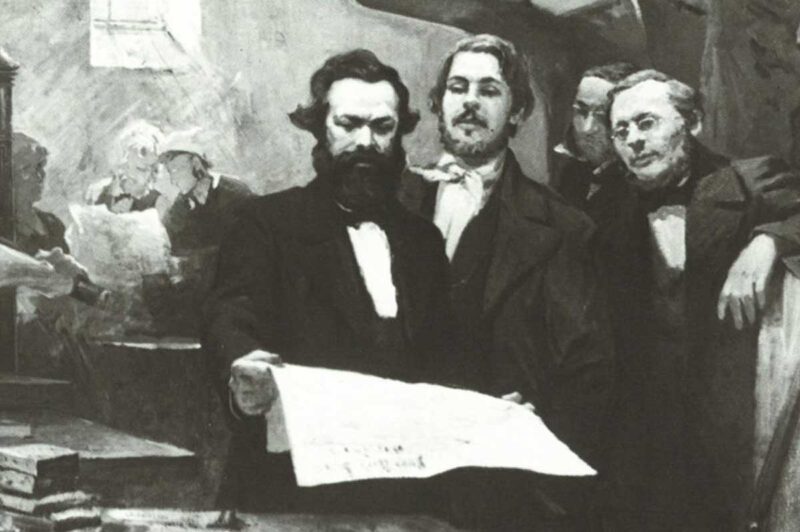The problem of autonomism
Luke Cooper discusses the growing phenomenon of autonomism in the anti-cuts and student movement
 “Socialist solidarity is autonomy”, wrote the German radical Herbert Marcuse, “self-determination begins at home – and that is with every I and the We whom I chooses.”
“Socialist solidarity is autonomy”, wrote the German radical Herbert Marcuse, “self-determination begins at home – and that is with every I and the We whom I chooses.”
This is one of the founding principles of autonomism – a set of ideas that has become increasingly popular among young people and students drawn to the resistance movement against austerity.
Autonomism is an enormously ‘broad church’ – it encompasses an array of different anarchisms, from more Marxist-influenced ideas through to less explicitly ideological forms of political activism.
But despite this tremendous variety, autonomists will tend to agree with Marcuse’s basic point: radical forms of solidarity take as their philosophical starting point the idea of the autonomous individual who wants to be free from the shackles of capitalist oppression.
It sounds compelling – aren’t we all individuals? Don’t we all have a right to live as we choose and isn’t the fundamental problem with capitalism that it denies us our freedom?
Yet, though it sounds convincing, once we think this idea through, we can uncover serious problems with it – problems that are as practical as they are philosophical.
It is a relatively recent development in human history that the idea of the individual has come to dominate thinking about how we relate to one another in society. It’s particularly associated with the rise of capitalist market economies and liberal accounts of how political institutions should work and function.
Individualism was a tidy solution to the problem of legitimacy that capitalism had: it got round the knotty issue of class divisions between rich and poor by promoting the idea that we are all individuals.
Autonomists will nearly always reject capitalist, liberal individualism and point out capitalism doesn’t actually make us free as individuals at all – we are subject to whole number of compulsions.
But there are reasons for thinking the idea of the individual as a separate entity to the rest of society is the bedrock of regressive politics. In reality, part of who we are, our ideas, identity and social class, is formed out of the world in which we live and our relationships with other people.
We are what Marx called ‘social beings’; we can only exist in a society with others, so there’s no such thing as an individual who isn’t already part of society. Some of these relationships we have are oppressive and exploitative, but where we have common interests we can unite in solidarity.
Which is why it’s not as simple as just “choosing our We” as Marcuse suggests.
We unite with our brothers and sisters in a common battle against racism, social oppression and exploitation because we have a shared interest. That can often mean putting aside our own feelings and passions in favour of a collective interest. The flipside of Marcuse’s position is that it risks embracing ‘egoism’, where the goal of liberation is that we just do as we please regardless of others.
Individualism in politics
Autonomists stole the headlines on 26 March when the ‘Black Bloc’ carried out direct actions on the fringes of the big TUC march. Many autonomists groups favour direct action in small, affinity group networks, over larger acts of collective power, and some promote property damage as a tactic.
This often leaves them isolated from the mass movement of workers that we need on our side to defeat the cuts and achieves little – smashing a window doesn’t do any damage to capitalism, but it can undermine our cause in the eyes of many working people.
Direct action is crucial to win – but it needs to be orientated to building a mass movement, through strikes, civil disobedience and occupation.
Fetishising the ‘autonomy’ of the individual can often stand in the way of this.
Autonomists organise in affinity groups, with each individual group free to choose what action is or is not acceptable, but then the wider group will still defend the actions from any repression that ensues. The problem with this is that there is no collective way of deciding – through mass democratic voting and accountable structures of authority – what action the group should take.
We can see how then the philosophical focus on individual autonomy can badly undermine democracy and collective principles of working. In addition, by organising in anonymous groups they are particularly vulnerable to infiltration by the police.
Nearly all autonomists will support workers’ strikes. But the principles around which these are organised are very different. When workers decide to take action they vote as a majority, then the minority respects the decision which is enforced through picket lines.
This undermines individual autonomy, but instead it promotes the collective social power of the working class. And it’s this collective power we have together that can be truly liberating.
We want to build a system where there is no contradiction between the free development of the individual and of all humanity – what Marx called communism. But collective – not autonomous – forms of organising and methods of struggle will be essential if we are to realise this future.


